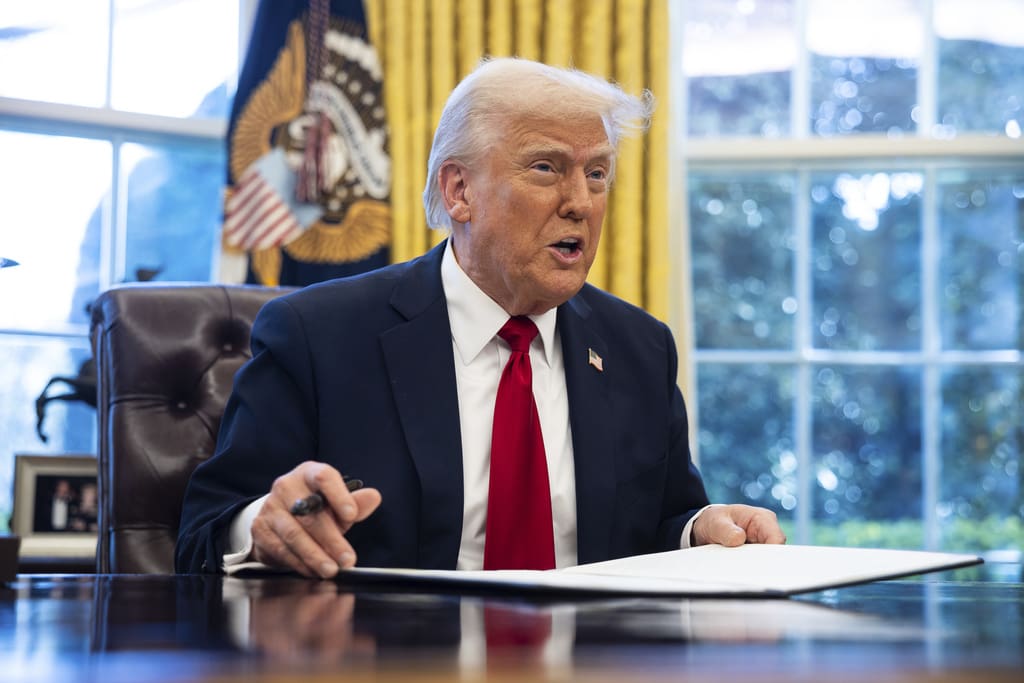In a surprising twist, President Donald Trump’s stance on Middle Eastern conflicts is under scrutiny following revelations from a leaked group chat discussing potential airstrikes on Houthi rebels in Yemen. This comes after Trump’s 2024 election night pledge to end wars in the region.
The leak emerged when journalist Jeffrey Goldberg inadvertently joined a Signal chat where Trump officials, including National Security Advisor Mike Waltz, discussed a confidential military raid. Goldberg shared with MSNBC that the chat contained sensitive details such as specific attack timings, targets, weapon systems, and weather forecasts. “I’m going to be responsible and not disclose the things that I read and saw,” Goldberg stated. “I will describe them to you: the specific time of a future attack, specific targets—including human targets meant to be killed in that attack—weapon systems, and even weather reports … It was a minute-by-minute accounting of what was about to happen.”
This incident has sparked criticism of Waltz, with some Democrats urging his resignation (source). Additionally, it casts doubt on Trump’s antiwar narrative, a key component of his campaign strategy. According to a Wall Street Journal poll, a significant portion of swing-state voters believed Trump would better manage foreign conflicts compared to Vice President Kamala Harris, viewing him as an antiwar candidate.
Trump’s antiwar rhetoric dates back to his initial presidential campaign, where he criticized the Iraq War, a stance he used against then-opponent Hillary Clinton, who supported the war in 2002. “The war in Iraq was a big, fat mistake,” he declared in February 2016.
Despite promises, Trump did not end the Afghanistan War in his first term and nearly initiated new conflicts, notably calling off airstrikes against Iran at the last minute in 2019. During his 2024 campaign, he vowed to resolve the Russia-Ukraine conflict in a day and secure a durable ceasefire between Israel and Hamas, neither of which has been realized.
Critics have accused Trump of placating Russian President Vladimir Putin, especially after urging Ukraine to cede territory as part of a proposed peace deal. His brief suspension of military aid to Ukraine earlier this month further fueled doubts about his foreign policy.
In Israel, Trump’s claimed facilitation of a ceasefire with Hamas disintegrated shortly after his inauguration, leading to renewed hostilities.
The U.S. has been engaged with the Houthi rebels since January 2024, following their attacks on shipping in the Red Sea in response to Israel’s actions in Gaza. Trump recently stated that the Houthis would be “completely annihilated.”
However, James R. Holmes, a strategist at the Naval War College, expressed skepticism about the administration’s approach to the Houthis, telling the New York Times that airstrikes alone are insufficient. “You have to control turf to win,” he explained. “Aircraft cannot occupy territory, however valuable a supporting capability they are for armies and Marines.”
Public opinion on Trump’s antiwar image was already shifting prior to the leak. An Ipsos poll from March indicated that only 37% of respondents approved of his foreign policy, with 50% disapproving.
Despite the controversies, the White House maintains its commitment to achieving peace in Yemen, Ukraine, and Israel.
—
Read More Kitchen Table News






